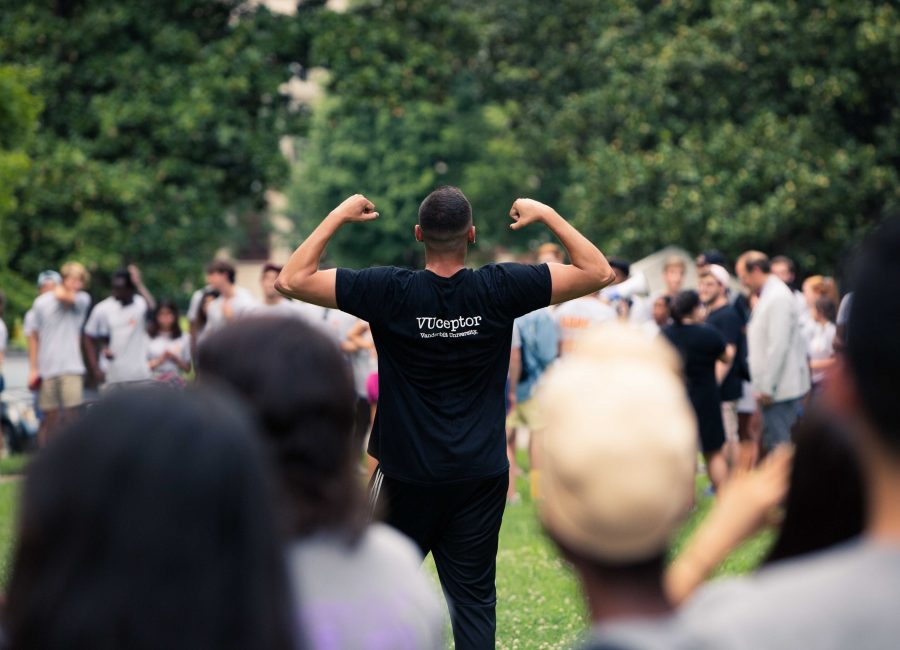Scrolling through my Instagram a few weeks ago, I saw a promotion for Vanderbilt’s newest student program: Social ‘Dores. The premise is simple: students create and curate social media content for official Vanderbilt accounts. The catch? The position, like so many others at Vanderbilt, is unpaid. The posting promises “free swag,” but does not mention monetary compensation of any kind.
by not paying these students for their labor, Vanderbilt displays a deep betrayal of the financial inclusivity the administration says it is trying to bring to campus.
Not paying students for their work is a common trend at Vanderbilt: VUcept and Tour Guides, among the most prestigious programs at Vanderbilt, don’t pay students for their work. However, VUcept and Tour Guides, unlike clubs or VSG, don’t just benefit students: they are a major selling point and labor source for Vanderbilt as an institution. Tour Guides and VUceptors do real, marketable work for the university – Tour Guides are the first point of contact for the thousands of potential students that visit Vanderbilt every year, and are responsible for making them feel welcome and at-home. Additionally, they are required to give a certain amount of tours per semester in order stay in the organization. Similarly, the Visions program is a major selling point for the university, and VUceptors undergo five 12 or more hour days of training before school starts. The time commitment doesn’t let up during the fall semester: between planning and leading weekly Visions meetings and doing mandatory one-on-one check-ins with VUceptees, their time commitment can be upwards of five hours per week.
These organizations do offer students some benefits: “swag,” as well as prestige, professional development opportunities and connections on campus. As such, these positions are some of the most competitive and sought-after on campus. But by not paying these students for their labor, Vanderbilt displays a deep betrayal of the financial inclusivity the administration says it is trying to bring to campus.
Beginning with Opportunity Vanderbilt and continuing with the Experience Vanderbilt Program, the administration has been expanding efforts to make all parts of campus inclusive for students receiving financial aid. However, not paying students who do work for the university undermines this principle; some students, particularly those on Federal Work Study, need to work in a paid, on-campus position to afford to stay at Vanderbilt.
I am one of these students; this semester, I had to take leave from being a Tour Guide because my on-campus job and classes conflicted with the available tour times. Although I love giving tours and sharing my Vanderbilt experience with prospective students, it was not feasible for me to try to change my school and work schedule for a volunteer position. It was a difficult decision, but I needed to prioritize money coming into my bank account over the “prestige” of being a Tour Guide – a tradeoff that I wouldn’t have had to make if Vanderbilt paid its Tour Guides.
In addition, other top 15 universities, including Harvard and Yale, pay their tour guides. If Vanderbilt was really committed to competing with these schools on all frontiers (looking at you, EBI), there would be no question of paying Tour Guides and VUceptors.
In the midst of larger debates about paying college athletes and the value of unpaid summer internships, we must call to attention the unfairness of exploitative free labor on our own campus. The excuse that “there isn’t enough room in the budget” to pay students – a familiar refrain to VUceptors and Tour Guides alike – isn’t a plausible excuse. Last year, Vanderbilt spent $35 million on academic programs alone; Chancellor Zeppos made over $4 million and Commons Ball had an ice sculpture. In contrast, paying 90 VUceptors $10 per hour for five hours of work per week during the fall semester would cost the university $72,000, or barely more than a single student’s full-price tuition.
If the university directly benefits from student work, those students should be compensated. Paying student VUceptors and Tour Guides would create a fairer, more inclusive application process, lessen the time burdens and trade-offs that students with financial need currently have to make and work toward the ultimate goal of true financial inclusivity on our campus.
Miranda Cross is a junior in the College of Arts and Sciences. She can be reached at [email protected].

